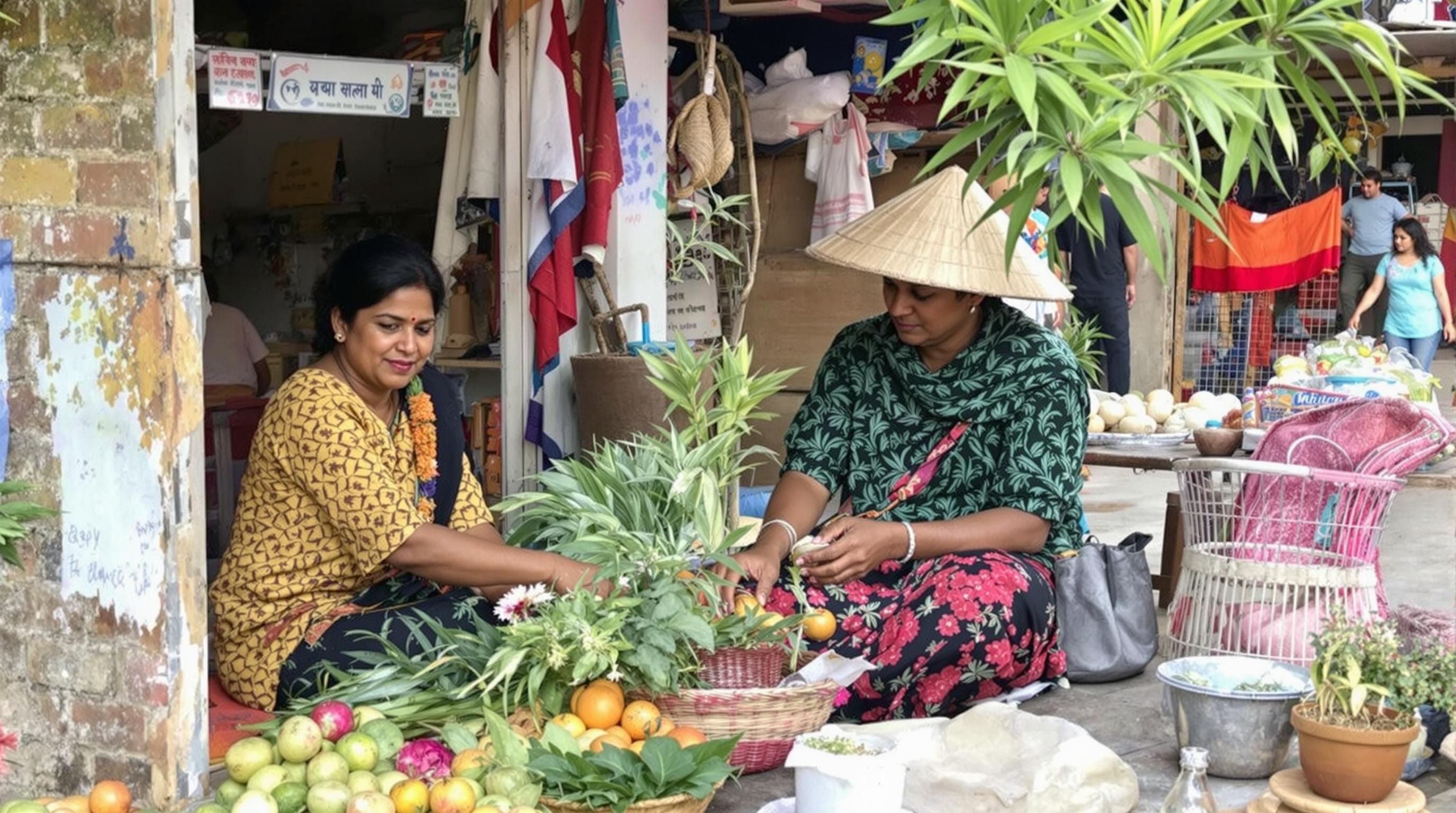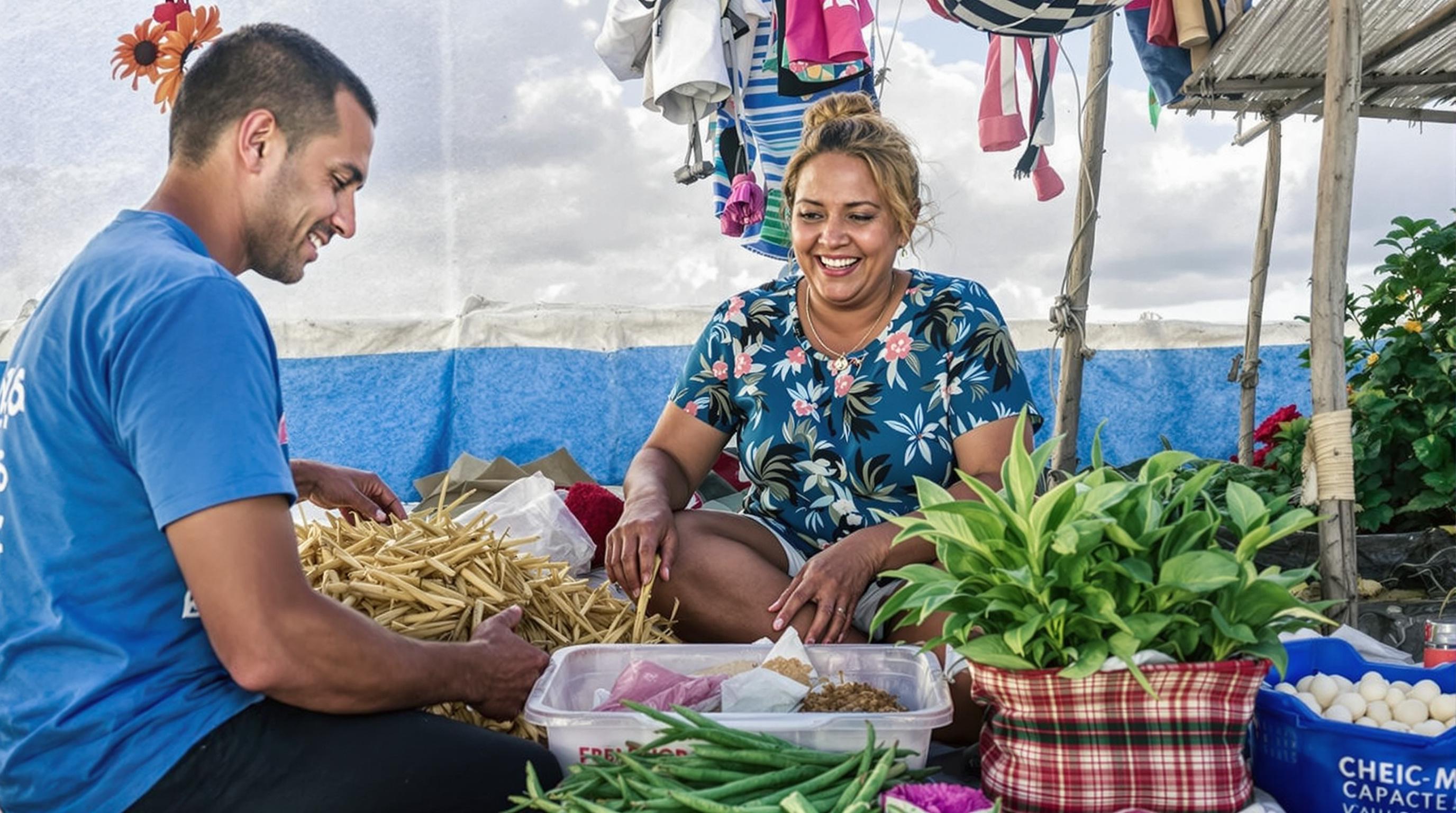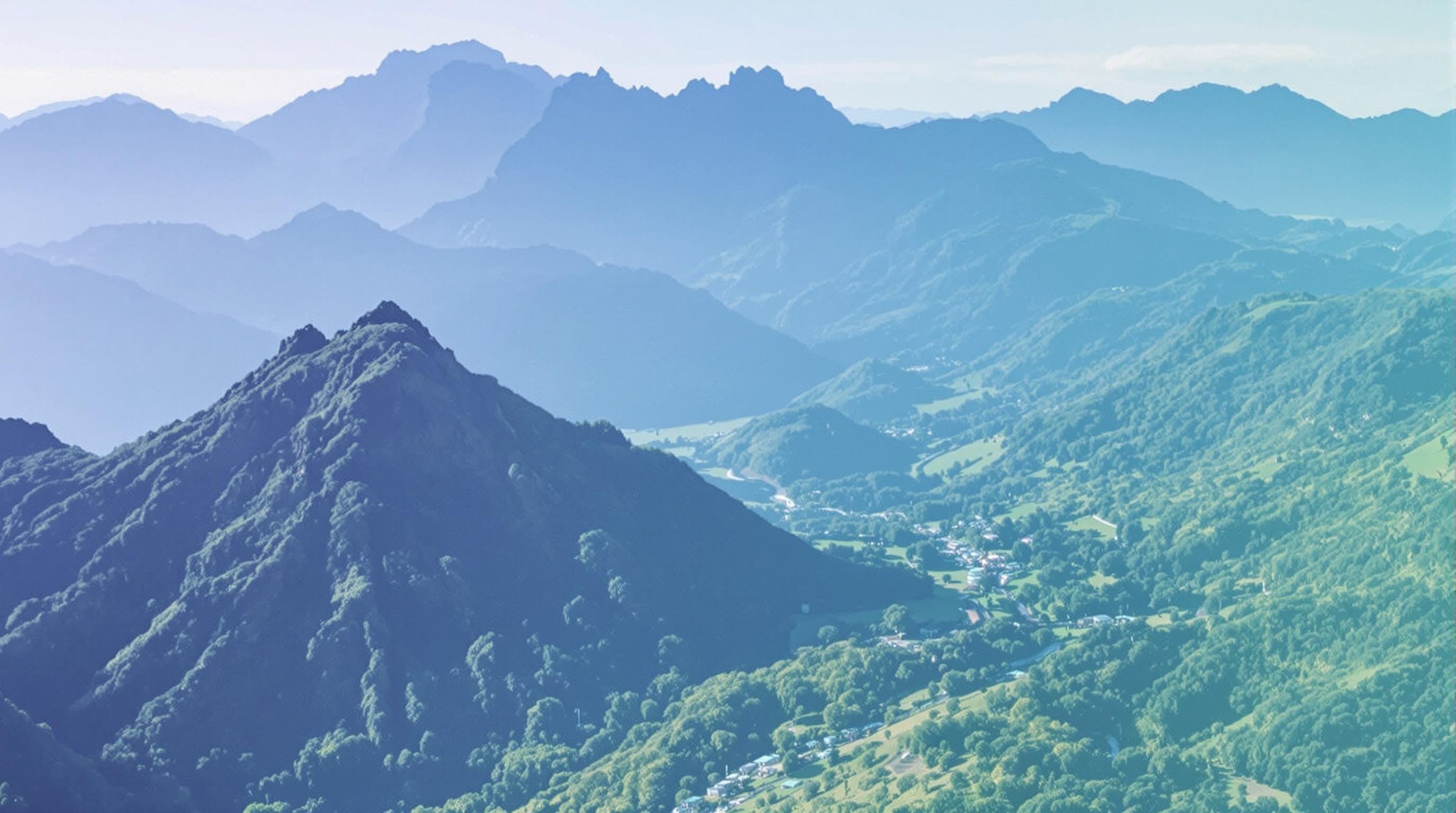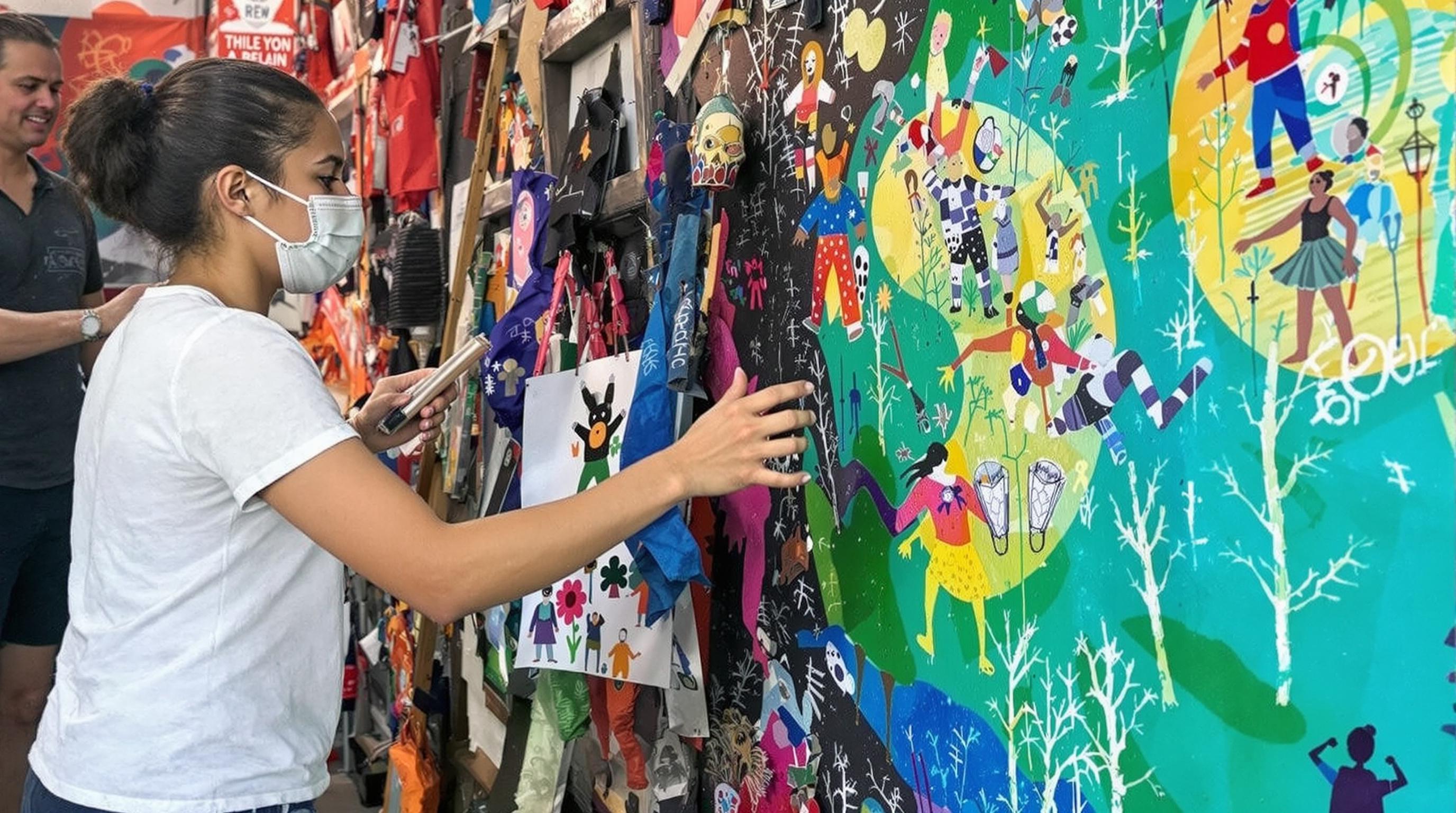Related Articles
- Uncharted Escapes: Navigating the Controversial Allure of Fringe Destinations and Their Untold Stories
- Uncharted Realms: The Surprising Intersection of Urban Legends and Adventure Travel in Offbeat Locations
- Curious Chronicles: Bizarre Transport Innovations Shaping Uncommon Explorations Across Unvisited Trails
- The Forgotten History of Eco-Adventuring: Learning from Indigenous Practices for Modern Exploration
- The Hidden Impact of Eco-Conscious Adventure Games on Environmental Education and Community Resilience
- Uncommon Routes: The Unexpected Appeal of Ghost Town Hikes in Eco-Friendly Exploration
10 Intriguing Interactions: Connecting with Local Spiritual Practices for an Enriching Cultural Immersion Experience Abroad
10 Intriguing Interactions: Connecting with Local Spiritual Practices for an Enriching Cultural Immersion Experience Abroad
10 Intriguing Interactions: Connecting with Local Spiritual Practices for an Enriching Cultural Immersion Experience Abroad
1. Embracing the Rituals of the Land
When traversing foreign lands, one’s heart can grow immensely by engaging in the local rituals. Each culture holds time-honored practices that echo the deep-rooted beliefs of its people. These rituals, be they cleansing ceremonies or harvest festivals, serve as gateways to understanding the essence of a community.
In Bali, Indonesia, for instance, you might find yourself participating in a Balinese purification ceremony called Melukat. This sacred ritual invites you to cleanse both body and spirit in the cooling waters of a temple, allowing you to forge a deeper connection with the island’s spirituality.
Engaging in these practices not only enriches your travel experience but also fosters a sense of respect and appreciation for the heritage of the land. It is a way of honoring the spiritual traditions that have shaped countless generations.
2. Sacred Spaces and Their Stories
Each sacred space tells tales of ancient wisdom and divine connection. From the majestic temples of Kyoto to the tranquil ashrams of Rishikesh, these locations offer solace and a chance for introspection. Walking through these hallowed grounds, one can often feel the vibrations of prayers that have ascended to the heavens.
Visiting the Blue Mosque in Istanbul, one can witness the intersecting of spirituality and architecture, marveling at the intricate designs that invoke a sense of the divine. Here, the act of sitting quietly in contemplation can lead to profound insights and serenity amid the bustling city life.
As you explore these sacred spaces, take the time to listen and absorb their energies. Every corner may hold a whisper of wisdom, waiting for a receptive heart to unveil its secrets.
3. Engaging with Local Healers
Across the globe, local healers embody the wisdom of herbal remedies, ancient practices, and deep spiritual connections to the earth. In communities where modern medicine may be scarce, these healers act as reminders of the nurturing kinship between humanity and nature.
In the Amazon rainforest, for example, one might meet a shaman who uses Ayahuasca in healing ceremonies. This sacred plant medicine not only serves as a path to personal insight but also provides a communion with the spirit world, leading to transformative experiences.
By partaking in such interactions, you come to appreciate not just the health benefits but the layers of spirituality intertwined in the practice. It is an opportunity to honor age-old traditions that many have revered for centuries.
4. Meditation in Local Contexts
Meditation is a universal practice, yet the styles and traditions vary beautifully from culture to culture. Immersing yourself in these diverse meditation practices can provide new insights and a deeper understanding of your own spiritual journey.
In Thailand, for instance, engaging in a Vipassana retreat allows you to experience the profound silence and stillness of Buddhist meditation. The daily routines of focused awareness provide not only personal clarity but also connect you with a long line of practitioners who tread the same path.
Such experiences emphasize the significance of mindfulness in everyday life and inspire you to integrate those lessons into your daily routine back home.
5. Celebrating Local Festivals
No travel experience is complete without participating in local festivals that highlight the spiritual fabric of a community. These celebrations encapsulate joy, devotion, and the collective energies of the people.
Consider joining the Carnival of Venice, where masks adorn the faces of revelers, symbolizing the dance between the seen and unseen. This vibrant celebration is steeped in historical significance, offering not only fun but also a reflection on the nature of identity and spiritual rebirth.
Engaging with locals during such festivities enables you to witness their values and beliefs in action, creating a bridge of cultural understanding while nurturing shared human experiences.
6. Nature as a Sacred Teacher
Mother Nature often serves as the greatest of teachers, her landscapes imbued with spiritual significance. Many indigenous cultures honor the earth by integrating nature into their spiritual practices, recognizing its role in nurturing both body and soul.
The Indigenous peoples of North America, for example, hold sacred ceremonies within the heart of the forest, emphasizing the connection between all living beings. By participating in these ceremonies, you can develop a deep reverence for the natural world and your place within it.
Such interactions encourage a pause in our fast-paced lives, allowing for reflection on our interconnectedness with the earth, inspiring not just a sense of gratitude, but a commitment to stewardship.
7. Discovering Local Arts and Crafts
The arts and crafts of a region often reflect the spiritual values of its people. Engaging with local artists can reveal not only their craftsmanship but the deeper meanings embedded within their creations. Paintings, sculptures, and textiles often serve as conduits for spiritual expression.
In Peru, for example, exploring the intricate weaving techniques of the Quechua community can reveal stories of ancestral wisdom and the connection between people and the cosmos. Each design has a purpose, a prayer woven into the fabric meant to invoke protection and harmony.
By supporting local artisans and understanding the spirituality behind their craft, you create a meaningful exchange that transcends mere consumerism and fosters mutual respect for cultural heritage.
8. Food as a Spiritual Experience
Food is not merely sustenance; it can also embody spiritual practice and community connection. Throughout various cultures, meals are shared not just as a physical nourishment but as an act of gratitude and celebration of life.
In India, for instance, participating in a communal feast called Langar after a prayer service in a Gurdwara exemplifies the spirit of selflessness and community. Here, the act of sharing food serves as a meditation on equality and unity, regardless of background.
By engaging in such culinary rituals, one gains insights into the cultural values and collective spirit that bind a community together, savoring not just the flavors, but the essence of fellowship.
9. Learning Local Languages of Spirituality
Language is a profound connector that can enhance your spiritual journey, offering deeper access to understanding cultural spirituality. When you learn the local tongue, you uncover the nuances and sacred meanings embedded in everyday communication.
In Spain, for example, learning the local dialect during an immersive flamenco experience can reveal the passion and spirituality associated with this musical tradition. The rhythm of the language and dance creates a synergy that resonates with the soul.
Engaging with locals in their language can open doors to heartfelt connections, fostering mutual respect and a shared appreciation for the richness of global spirituality.
10. Reflection and Integration
As your journey comes to a close, take time for personal reflection to integrate the myriad experiences you have encountered. Spiritual growth often stems from contemplation and understanding, allowing you to internalize the lessons learned during your travels.
Consider journaling your insights and the transformative moments that resonated deeply within you. Acknowledging these ephemeral connections can create a tangible impact that lasts long after the trip.
Ultimately, cultural immersion through spirituality serves as a mirror, reflecting not only the beauty of diverse traditions but also the universal quest for meaning and connection that lies within us all.




